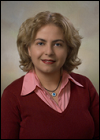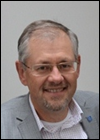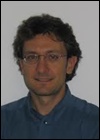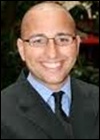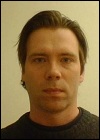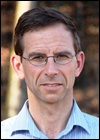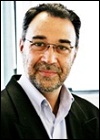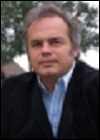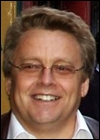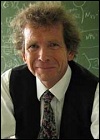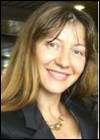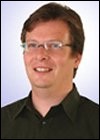Workshops
Full- Day Workshops, Sunday, 9 June 2013, 09:00 - 17:30
Scope:
Scope:
The scope of the CoCoNet5 workshop is to bring together a highly qualified group of people with interest in cooperative and cognitive wireless networks. Cooperation is becoming a major subject in research in the wireless communication community as it has been identified as one of the underlying principles for future wireless communication systems. Cooperation, altruistic or non-altruistic, is the basis to break up the cellular concept and enrich it by multi hop, peer-to-peer, or grid functionalities. The workshop will highlight the newest trends in this emerging area, complementing it with first practical implementations and demonstrations in this field. New technologies and concepts such as network coding and mobile clouds are the driving forces for cooperative and cognitive networks.
Chairs:
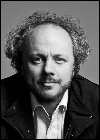
Frank Fitzek
Aalborg University
Denmark |
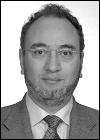
Marcos Katz
University of Oulu
Finland |

Qi Zhang
Aarhus University
Denmark |
Contact e-mail: ff@es.aau.dk
Scope:
While existing standards of LTE-A already allow very high data rates for few users in a cell, there are still open questions that need to be addressed in future systems. For sure energy, capacity, and efficiency are key elements in future cellular systems as they directly affect the OPEX of such systems. Low latency also remains a crucial element to drive some applications. With further advances in high speed trains it becomes important to further enhance the support for high-speed users, beyond what is possible with LTE-A. Only through sophisticated coordination schemes we can expect to significantly increase multi-user efficiency. However, the required feedback data load as well as response time needs to be kept low in order to become a realistic concept. While Machine to Machine (M2M) communication is already part of the existing standard, the classical cellular system is not able to communicate with hundreds or even thousands of machines in a single cell. Device-to-device (D2D) communication is a promising technique to increase the efficiency of cellular communication systems. It is of significant interest to devise D2D communication schemes that underlay conventional LTE networks in an energy-efficient and interference-aware manner.
Chairs:
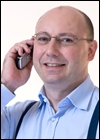
Markus Rupp
Vienna University of Technology
Austria |
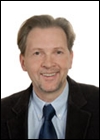
Constantinos Papadias
Athens Information Technology
Greece |
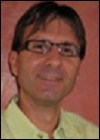
Angel Lozano
Universitat Pompeu Fabra UPF
Spain |
Contact e-mail: mrupp@nt.tuwien.ac.at
Scope:
The ever-increasing need for higher data rates and multimedia services leads to stringent requirements on the bit rate/km2 that next-generation cellular wireless networks are expected to deliver. This increasing trend has urged mobile operators to examine new ways for improving their coverage, boosting their network’s capacity, and lowering their capital and operating expenditures. A promising approach to solving this problem is through the deployment of Small Cell Networks (SCNs). SCNs represent a novel networking paradigm based on the idea of deploying short-range, low-power, and low-cost base stations operating in conjunction with the main macro-cellular network infrastructure. This includes a number of small cells that include femtocells, picocells, metrocells, and microcells – broadly varying in size and capabilities. The use of SCNs is envisioned to enable next-generation networks to provide high data rates, allow offloading traffic from the macro cell, and provide dedicated capacity to homes, enterprises, or urban hotspots. SCNs are also expected to pave the way for a plethora of new wireless services. The objective of this workshop is to bring together leading academic and industrial researchers in an effort to identify and discuss the major technical challenges and recent results related to small cell and heterogeneous networks
Chairs:
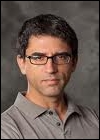
Giuseppe Caire
University of Southern California
USA |
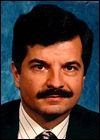
Reinaldo Valenzuela
Lucent Technologies
USA |
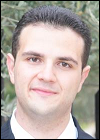
Walid Saad
University of Miami
USA |
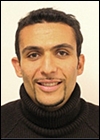
Mehdi Bennis
Centre of Wireless Comm. University of Oulu, Finland |
Contact e-mail: walid@miami.edu
Scope:
Scope:
Although radar and sonar rely on two fundamentally different types of wave transmission, Radio Detection and Ranging (RADAR) and Sound Navigation and Ranging (SONAR) both are remote sensing systems with important military, scientific and commercial applications. RADAR sends out electromagnetic waves, while active SONAR transmits acoustic (i.e., sound) waves. In both systems, these waves return echoes from certain features or targets that allow the determination of important properties and attributes of the target (i.e., shape, size, speed, distance, etc.). Because electromagnetic waves are strongly attenuated (diminished) in water, RADAR signals are mostly used for ground or atmospheric observations. Because SONAR signals easily penetrate water, they are ideal for navigation and measurement under water. The networking of radars or sonars are two emerging research areas, known as radar networks and underwater networks. The goal of the Workshop is to publish the most recent results in the development of radar networks and underwater networks. Researchers and practitioners working in this area are expected to take this opportunity to discuss and express their views on the current trends, challenges, and state of the art solutions addressing various issues in radar and underwater networks.
Chairs:
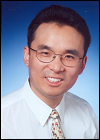
Qilian Liang
Univ. of Texas at Arlington
USA |
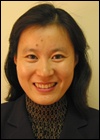
Xiuzhen Cheng
George Washington Univ
US |
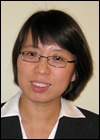 < <
Jun-Hong Cui
University of Connecticut
USA |
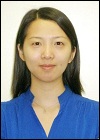
Jing Liang
Univ. of Electronic Science and Technology, China |
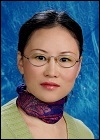
Baoju Zhang
Tianjin Normal University
China |
Contact e-mail: liang@uta.edu
Scope:
The ability to locate and seamlessly track assets in indoor/dense urban environments without access to GPS is a complex and challenging task mainly due to the harsh multipath environment and the high probability of non-line of sight (NLOS) propagation conditions. The goal of this workshop is to disseminate advances in active and passive network localization and navigation, especially the development of new positioning algorithms based on short-range wireless communications. This workshop will bring together academic and industrial researchers to identify and discuss technical challenges and recent results related to short-range positioning.
Chairs:
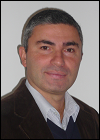
Davide Dardari
University of Bologna
Italy |
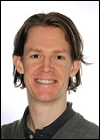
Klaus Witrisal
Graz Univ. of Technology Austria |
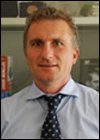
Andrea Conti
ENDIF Univ. of Ferrara, WiLAB Univ. of Bologna |
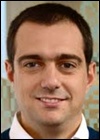
Alberto Rabbachin
MIT, USA
Univ. of Bologna, Italy |
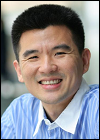
Tony Q. S. Quek
Singapore Univ. of Technology and Design |
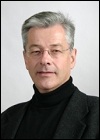
Bernard H. Fleury
Aalborg University
Denmark |
Contact e-mails: witrisal@tugraz.at, ddardari@ieee.org
Scope:
The scope of this workshop is to bridge the gap between researchers, scientists, and standards experts across all areas of telecommunications and to romote standardization as an important vehicle for information sharing and cooperation between academia and industry. Additionally, we aim to bring together experts from different standardization bodies, providing opportunities for closer understanding and collaboration; catalyzing development of more interoperable standards and more efficient and effective communication systems.
Chairs:
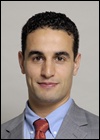
Tarik Taleb
NEC Europe Ltd
Germany |
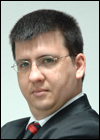
Tuncer Baykas
NICT
Japan |
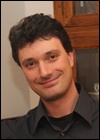
Alex Reznik
InterDigital
USA |
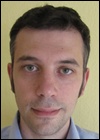
Konstantinos Samdanis
NEC Europe Ltd.
Germany |
Contact e-mails: tbaykas@ieee.org,
tbaykas@yahoo.com,
talebtarik@gmail.com,
rezlev@gmail.com,
Konstantinos.Samdanis@neclab.eu
Scope:
Smart communication protocols and algorithms make use of several methods and techniques (such as machine learning techniques, decision making techniques, knowledge representation, network management, network optimization, problem solution techniques, and so on), to communicate the network devices to transfer data between them. They can be used to perceive the network conditions, or the user behavior, in order to dynamically plan, adapt, decide, take the appropriate actions, and learn from the consequences of its actions. The algorithms can make use of the information gathered from the protocol in order to sense the environment, plan actions according to the input, take consciousness of what is happening in the environment, and take the appropriate decisions using a reasoning engine. Goals such as decide which scenario fits best its end-to-end purpose, or environment prediction, can be achieved with smart protocols and algorithms. Moreover, they could learn from the past and use this knowledge to improve future decisions.
In this workshop, researchers submitted papers focused on the design, development, analysis or optimization of smart communication protocols or algorithms at any communication layer. Algorithms and protocols based on artificial intelligence techniques for network management, network monitoring, quality of service enhancement, performance optimization and network secure are included in the workshop.
Chairs:
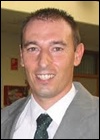
Jaime Lloret
Univ. Politécnica de Valencia
Spain |
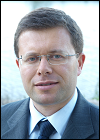
Joel Rodrigues
Instituto de Telecomunicações, Univ. of Beira Interior, Portugal |
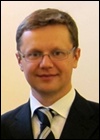
Yevgeni Koucheryavy
Tampere Univ. of Technology
Finland |
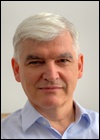
Ivan Stojmenovic
University of Ottawa
Canada |
Contact e-mails: jlloret@dcom.upv.es,
joeljr@ieee.org
Half-Day Workshops, Thursday, 13 June 2013, 09:00 - 12:30
Scope:
Scope:
Scope:
This workshop focuses on the following topic areas. One is the use cases for automated, dynamic and QoS-aware provisioning of user-cloud and cloud-cloud connectivity. Another topic is the definition of requirements for the WAN connectivity from a cloud provider point of view that has to be fulfilled by the network of the CSP – for example Software Defined Networking could provide the mechanisms to achieve flexible end to end connectivity. Finally, the last part is the general architecture for the interaction of IT and telecommunication networks including e.g. interfaces and protocols to realize a combined control, management and optimization of IT and telecommunication networks.
Chairs:
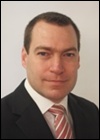
Marco Hoffmann
Nokia Siemens Networks
Germany |
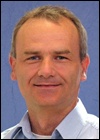
Josef Urban
Nokia Siemens Networks
Germany |
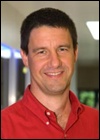
Holger Macho
IBM
Germany |
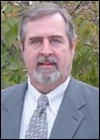
Glen Hunt
Current Analysis
USA |
Contact e-mail: marco.hoffmann@nsn.com
The workshop 'Beyond Social Networks: Collective Awareness' will discuss genuinely grassroots ideas leveraging on the collaboration potential of the Internet, as well as more specific multidisciplinary research ideas (not limited to computer science or telecommunications, but actively involving social media, sociology, anthropology, economy, law, biology, art) addressing techno-social aspects which are key for the evolution of social networks as systems supporting society
Chairs:
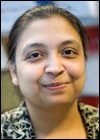
Neeli Prasad
Center for TeleInFrastructure
Denmark |

Fabrizio Sestini
European Commission DG
Information Society and Media, Belgium |
Contact e-mails: neeli.prasad@ieee.org,
Fabrizio.Sestini@ec.europa.eu
Scope:
The aim of IMC workshop is to target novel issues in immersive media networking where IP offers flexibility in designing novel optimal communication systems for various multimedia data representations and encoding schemes. Transmission and adaptation of coded media to cope with heterogeneous communication networks, diverse terminal equipment and user interaction is an open topic where sound contributions are presented. The workshop includes both service personalisation and QoS/QoE assurance by seeking for efficient solutions in the fields of : i) server-side adaptation, for optimisation of one-to-many single-stream media content, such as multicast streaming; ii) In-network adaptation, where multimedia streams, especially 3D streams, are processed by the network elements themselves, an approach that is best suited for multicast traffic, where different delivery paths may have different capacities; and iii) Client-side adaptation, in the case where dissimilar media streams are to be re-transmitted or re-distributed in a local manner.
Chairs:
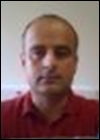
Pedro Assuncao
Instituto de Telecomunicacoes Polytechnic Inst. of Leiria, Portugal |
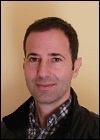
Luigi Atzori
University of Cagliari
Italy |
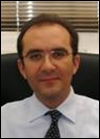
Tasos Dagiuklas
Technological Educational Institute of Mesolonghi, Greece |
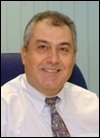
Ahmet Kondoz
University of Surrey
UK |
Contact e-mails: l.atzori@diee.unica.it,
amado@co.it.pt,
ntan@teimes.gr,
A.Kondoz@surrey.ac.uk
Half-Day Workshops, Thursday, 13 June 2013, 14:00 - 17:30
Scope:
In the era of cloud computing, multimedia and Internet of Things, the research challenges in computing and communication are strictly related. Moreover, advancements in one field drive and stimulate progress in the other. The solutions can only come by considering the problem from all perspectives: from network to distributed computing, from service engineering to context awareness, from data management to m2m. This workshop aims at bringing together scientists with all these different backgrounds to discuss, define and design methods and technologies for efficiently supporting Cloud technologies towards the Internet of Things.
Chair:
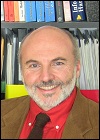
Pier Luca Montessoro University of Udine
Italy |
Contact e-mail: montessoro@uniud.it
TRICANS workshop will provide an excellent international forum for sharing state-of-the-art advances and experiences in scientific research on Internet traffic identification and classification and their associated applications on advanced network scenarios and novel network services. TRICANS will explicitly consider traffic identification and classification as well as management issues related to very hot and challenging scenarios such as content-centric networks (CCN), Software Defined Networks (SDN), cloud computing systems and data centers, virtual networks, and the like.
The ever-growing network link speeds have reached hundreds of Gbps and they are quickly approaching to Tbps in the core network. In order to support accurate network profiling of users and services, ISPs have been relying on Deep Packet Inspection (DPI), flow-based techniques, or other behavioral analysis of the Internet traffic. However, there are still a number of challenges in this field. One one hand, new networked applications come daily into play bringing massive amounts of traffic data to be processed in real-time. Such traffic volume keeps driving industry and academia researchers to develop affordable yet efficient traffic identification and classification systems. To this end, there are demands for high-performance distributed and parallel traffic classification systems for both commodity or special-purposed hardware platforms. On the other hand, in the long-term, such solutions for traffic profiling will become part of the network management tools and techniques portfolio available for advanced network services. Also, new architectures and their supporting technologies, such as information- and content-centric networking architectures, cloud computing and network virtualization, and the like, will require network profiling services to enable robust and dynamic networking services capabilities.
To address these research challenges, this workshop will focus on theory, tools, techniques, and applications of traffic identification and classification systems to enable advanced support for next-generation network architectures, services, and scenarios.
Chairs:
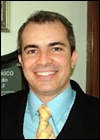
Stenio Fernandes
Federal Univ. of Pernambuco, Brazil |
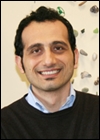
Antonio Pescapé
Univ. of Napoli Federico II
Italy |
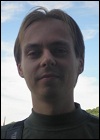
Géza Szabó
Ericsson Research
Hungary |
Contact e-mail: sflf@cin.ufpe.br
Scope:
The IEEE ICC 2013 Emerging Vehicular Networks (EVN) Workshop will contain ten paper presentations on V2V/V2I and T2T/T2I communications and networking. The Workshop will focus on three principal aspects of the communications problem:
1) characterization of vehicular channel impairments,
2) development of robust MAC and network layer protocols that will ensure efficient use of the limited spectrum to deliver time-critical messages and
3) methods for simulating, characterizing and testing V2V/V2I & T2T/T2I networks.
The workshop will begin with presentation of new results followed by an open discussion on key topics of present interest and future R&D directions.
Chairs:
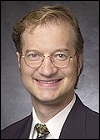
David Matolak
University of South Carolina
USA |
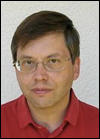
David Michelson
University of British Columbia
Canada |
Contact e-mails: davem@ece.ubc.ca
Scope:
Communication networks currently experience a culmination in their chaotic evolution with ever increasing demand, complexity and heterogeneity. Statistical physics aims at understanding the collective behavior of large disordered systems of randomly interacting components. NETSTAT aims at bringing together researchers from different communities such as communication theory, information theory, networking, and statistical physics in order to delineate a common foundational framework at the interface between these disciplines and harness techniques that are inspired from statistical physics principles to advance state of the art in information / communication theory and network optimization problems. We aim to propose methods that remove the barrier of combinatorial complexity in network control problems by leveraging statistical physics based approximation techniques and enhance statistical physics methodologies with a pragmatic view dictated by networking problems and rigorous approaches used in the information theory community.
Chairs:
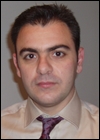
Iordanis Koutsopoulos
University of Thessaly and CERTH, Greece |
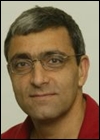
David Saad
Aston University
UK |
Contact e-mails: jordan@uth.gr,
d.saad@aston.ac.uk
Scope:
Recent improvements in nanotechnologies have enabled the realization of nano-scale machines, i.e., nanomachines, that promise new solutions for several applications in biomedical, industry and military fields. Many of these envisioned nanotechnology applications, e.g., intelligent drug delivery system or intra-body multi-modal health monitoring, require a set of nanomachines to collaboratively achieve a common task, which clearly mandates practical realization of communication and networking at the nanoscale. A number of nanomachines communicating with each other are envisioned to form a network architecture called a nanonetwork. Due to size and capabilities of these nanomachines as well as the challenges posed by the physical laws governing this regime, the classical communication paradigms are inapplicable in nanonetworks. Hence, a set of new molecular and nanoscale communication paradigms is imperative for the realization of the future collaborative and distributed nanotechnology applications. The main aims of this workshop are to increase the visibility of this growing research area to the wider communication research community as well as foster new inter-disciplinary research by bridging the field of nano and molecular technologies and information and communication technology (ICT) research. The workshop will include papers that capture the current state-of-the-art in the field of molecular and nanoscale communications, e.g., information, communication and network theoretical analysis of molecular and nanonetworks, mobility in molecular and nanonetworks, novel and practical communication protocols, routing schemes and architectures, design/engineering/evaluation of molecular and nanoscale communication systems, as well as their potential applications. Therefore, based on the scope of the workshop, the target audience will cover both traditional communication networking researchers (wired and wireless) as well as researchers from other fields.
Chairs:
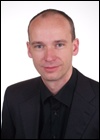
Falko Dressler
University of Innsbruck
Austria |
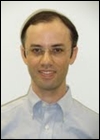
Michael Moore
Osaka University
Japan |
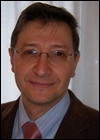
Pietro Lio
University of Cambridge
UK |
Contact e-mail: dressler@ieee.org
Scope:
WORKSHOP CHAIRS
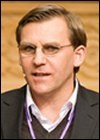
Thomas Michael Bohnert
Zurich University of Applied Sciences, Switzerland |
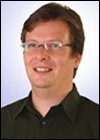
Christoph Mecklenbrauker
Vienna University of Technology,
Austria |
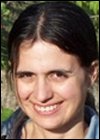
Christina Fragouli
EPFL Lausanne,
Switzerland |

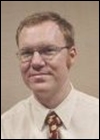
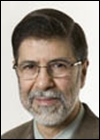
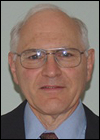
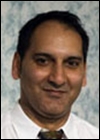
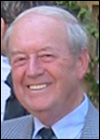
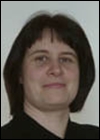










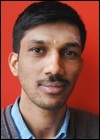
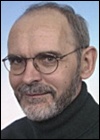
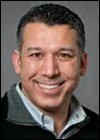


 <
<














